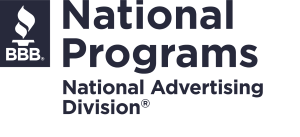
New York NY – November 25, 2025 – Following a Fast-Track SWIFT challenge from The Procter & Gamble Company (P&G) regarding influencer and social media advertising for One Home Brands, Inc. d/b/a Blueland, BBB National Programs’ National Advertising Division determined that certain uses of the TikTok Shop “creator earns commission” disclosure were appropriate.
Fast-Track SWIFT is an expedited process for single-issue advertising cases reviewed by the National Advertising Division (NAD). Blueland is a household products company that competes with P&G and advertises through a variety of methods, including influencer and affiliate marketing.
The challenged social media posts were posted by individuals who promote Blueland’s cleaning products.
NAD reviewed the use of TikTok Shop by creators to promote Blueland’s cleaning products, using the “creator earns commission” disclosure as required by the TikTok platform. Based on the specific context in which the disclosure appears, for those creators who were provided free product and whose only other relationship to Blueland is to participate in the TikTok shop affiliate program, NAD found that TikTok’s automated disclosure “creator earns commission” sufficiently informs consumers that a commercial relationship exists between the creators and Blueland and that no additional disclosure is necessary.
During the proceeding, Blueland stated that it had identified certain TikTok Shop posts from four creators who may have received additional compensation based on other partnerships with Blueland separate from their participation in the TikTok Shop affiliate program and requested those creators modify their posts to include additional disclosures regarding their partnership with Blueland, or discontinue the posts.
In addition, Blueland stated it would work with past and present creators of sponsored posts to revise other challenged posts to include clear and conspicuous disclosures.
Therefore, NAD did not review the voluntarily modified or discontinued claims on their merits and will treat the claims, for compliance purposes, as though NAD recommended they be modified or discontinued.
With respect to influencers who had no material connection to Blueland, because third-party statements are not considered Blueland’s advertising, therefore, NAD did not review these claims on the merits due to lack of jurisdiction.
All BBB National Programs case decision summaries can be found in the case decision library. For the full text of NAD, NARB, and CARU decisions, subscribe to the online archive. Per NAD/NARB Procedures, this release may not be used for promotional purposes.
About BBB National Programs: BBB National Programs, a non-profit organization, is the home of U.S. independent industry self-regulation, currently operating more than 20 globally recognized programs that have been helping enhance consumer trust in business for more than 50 years. These programs provide third-party accountability and dispute resolution services that address existing and emerging industry issues, create fair competition for businesses, and a better experience for consumers. BBB National Programs continues to evolve its work and grow its impact by providing business guidance and fostering best practices in arenas such as advertising, child-and-teen-directed marketing, data privacy, dispute resolution, automobile warranty, technology, and emerging areas. To learn more, visit bbbprograms.org.
About the National Advertising Division: The National Advertising Division (NAD) of BBB National Programs provides independent self-regulation and dispute resolution services, guiding the truthfulness of advertising across the U.S. NAD reviews national advertising in all media and its decisions set consistent standards for advertising truth and accuracy, delivering meaningful protection to consumers and create fair competition for business.
Contact Information
Name: Jennifer Rosenberg
Email: jrosenberg@bbbnp.org
Job Title: media relations
BFGoodrich Tires, Paramount+ partner on Season 2 of “Landman”


- Campaign features Jacob Lofland and the BFGoodrich All-Terrain T/A KO3 tire
- From Co-Creator Taylor Sheridan, Season 2 of Landman is now streaming exclusively on Paramount+
GREENVILLE, S.C., Nov. 20, 2025 – BFGoodrich Tires, the pioneer of peak off-road driving performance, today announced a product integration partnership with Paramount+ and the hit TV series Landman, which returned for its second season on Nov. 16. New episodes of Landman, starring Oscar® winner Billy Bob Thornton, are available to stream every Sunday.
Set in the lucrative, yet dangerous world of the West Texas oil industry, Landman is a story of ambition, grit and endurance, making it the perfect backdrop for BFGoodrich Tires, which are built to overcome the toughest conditions.
The partnership brings BFGoodrich into the Landman narrative in a way that’s authentic to the show’s rugged aesthetic and character-driven storytelling. After all, the tagline for the new BFGoodrich All-Terrain T/A KO3 tire is “Legendary Toughness, Made Tougher.”
“BFGoodrich Tires are engineered for people who live boldly and drive with purpose,” said Omer Waysman, vice president of marketing for Michelin North America, Inc.’s business-to-consumer products. “Partnering with Landman allows us to showcase the outstanding performance of the KO3 tire, and other Terrain Family products, in a variety of harsh terrains.”

“Ready for Anything”
The KO3 tire is displayed in a marketing campaign titled “Ready for Anything,” starring Landman’s Jacob Lofland, who plays young oilman Cooper Norris in the series. The short-form docu-style piece was shot at Henderson-Durham Ranch in Jacksboro, Texas, and was produced by Paramount Brand Studio, with a crew headed by Emmy-winning director and cinematographer Scott Duncan.
In the 90-second vignette, Lofland takes viewers along for a ride, while describing his process, character and mindset as an actor. He connects his Landman experiences to themes that genuinely fit BFGoodrich: tough enough for “The Patch,” the dynamic backdrop of Paramount’s Landman, but ready for everyday life and whatever it throws at you.
Lofland illustrates how his character embodies the spirit of “legendary toughness, made tougher” and shows respect to the Texas landscape as well as the real oilfield “roughnecks,” who find a way to handle any situation they encounter.
“Creating stories that truly resonate is central to what we do, and our partnership with BFGoodrich underscores that commitment,” said Dario Spina, CMO, Paramount Brand Studio. “With Landman so deeply connected to the terrain of West Texas, BFGoodrich’s natural off-road tire performance made the collaboration a perfect match. Together, we were able to seamlessly integrate BFGoodrich into the fabric of Landman, while also creating content that offers an added extension for fans.”
A 30-second version of the vignette first aired Sunday, Nov. 16, during the premiere of Season 2. The full 90-second vignette will appear on Landman social media channels, supported by BFGoodrich, later this month.
Product integration
The KO3 tire’s predecessor, the iconic BFGoodrich All-Terrain T/A KO2 tire, as well as the rugged BFGoodrich HD-Terrain KT tire can be seen on key vehicles during Season 2. New episodes air each week from Nov. 16, 2025, through Jan. 18, 2026.
This partnership marks a bold evolution in branded entertainment, where product and story converge to create unforgettable moments.
About Landman
Co-created by Taylor Sheridan and Christian Wallace, Landman stars Oscar® winner Billy Bob Thornton, Oscar® nominee Demi Moore, Oscar® nominee Andy Garcia, Oscar® nominee Sam Elliott, Ali Larter, Jacob Lofland, Michelle Randolph, Paulina Chávez, Kayla Wallace, Mark Collie, James Jordan and Colm Feore.
Set in the boomtowns of West Texas, Landman is a modern tale of fortune seeking amongst roughnecks and wildcat billionaires – fueling an oil boom so big it’s reshaping the climate, the economy and geopolitics.
In Season Two, as oil rises from the earth, so do secrets – and Tommy Norris’s (Thornton) breaking point may be closer than he realizes. Facing mounting pressure from M-Tex Oil, Cami Miller (Moore), and the shadow of his kin, survival in West Texas isn’t noble – it’s brutal. And sooner or later something’s got to break.
Landman is executive produced by Taylor Sheridan, David C. Glasser, David Hutkin, Ron Burkle, Bob Yari, Christian Wallace, Billy Bob Thornton, Geyer Kosinski, Michael Friedman and Stephen Kay. Dan Friedkin and Jason Hoch for Imperative Entertainment, and J.K. Nickell and Megan Creydt for Texas Monthly also executive produce. Tommy Turtle serves as co-executive producer.
The series is produced by Paramount Television Studios, 101 Studios and Sheridan’s Bosque Ranch Productions.
About Paramount+
Paramount+ is a premium streaming subscription service delivering live sports, breaking news, and a Mountain of Entertainment™, and is a cornerstone of the Direct-to-Consumer division at Paramount, a Skydance Corporation (Nasdaq: PSKY), a leading, next‑generation global media and entertainment company. The Company’s portfolio unites legendary brands, including Paramount Pictures, Paramount Television, CBS – America’s most‑watched broadcast network, CBS News, Nickelodeon, MTV, BET, Comedy Central, Showtime, Paramount+, Pluto TV, and Skydance’s Animation, Film, Television, Interactive/Games, and Sports divisions. For more information please visit www.paramount.com.
About Paramount Television Studios
Paramount Television Studios (PTVS) is a leading content studio, developing and producing premium television programs across a wide range of platforms. The studio’s slate includes hit series such as 1923, Landman, Tulsa King, Lioness, The Agency: Central Intelligence, MobLand, Mayor of Kingstown, and School Spirits for Paramount+; Dexter: Resurrection for Showtime; The Road for CBS; Reacher, Cross, and The Runarounds for Prime Video; Foundation for Apple TV+; and Emily in Paris and XO, Kitty for Netflix. Upcoming series from PTVS include 9/12 for Paramount+; Y: Marshals for CBS; Neagley and Ride or Die for Prime Video; and Neuromancer, 12 12 12, and Brothers for Apple TV+. Paramount Television Studios is a subsidiary of Paramount, a Skydance Corporation (NASDAQ: PSKY), a leading global media and entertainment company.
About BFGoodrich Tires
BFGoodrich Tires is dedicated to providing high performance tires for those who have a passion for driving in virtually any environment. Combining technical expertise with 50 years of motorsports experience, BFGoodrich delivers tires for a full range of driving experiences from ultra-high-performance street to off-road terrain with one common theme – extreme performance. Come upgrade your performance with BFGoodrich and see where our tires can take you at BFGoodrichTires.com and BFGoodrichRacing.com, as well as on Facebook and Instagram at @BFGoodrichTires and TikTok at @BFGoodrich.
For more information, contact:
Andrew Festa
Contact Information
Name: Andrew Festa
Email: andrew.festa@michelin.com
Job Title: BFGoodrich Public Relations Manager
In National Advertising Division Challenge, Regen Doctors Voluntarily Discontinues Compounded Semaglutide Product Claims
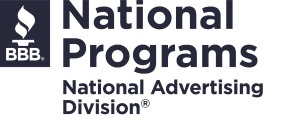
New York, NY – November 20, 2025 – Following a challenge brought by Novo Nordisk Inc., BBB National Programs’ National Advertising Division reviewed express and implied advertising claims made by Regen Doctors, Inc. for its compounded semaglutide products that appeared on Regen’s website.
Regen Doctors is a telehealth company located in Allentown, Pennsylvania that markets compounded drugs to patients and physicians in many U.S. states. Challenger Novo Nordisk is a global pharmaceutical company specializing in diabetes care as well as other chronic conditions including obesity, rare diseases, and cardiovascular conditions. Novo Nordisk markets the only FDA-approved semaglutide medicines, including Rybelsus®, Ozempic® and Wegovy®.
Novo Nordisk challenged Regen Doctors’ express and implied claims regarding its compounded semaglutide product’s claimed superiority, safety, efficacy, and health benefits.
During the inquiry, Regen Doctors informed the National Advertising Division (NAD) that it had permanently discontinued the challenged claims. Therefore, NAD did not review the claims on their merits and will treat the discontinued claims, for compliance purposes, as though NAD recommended they be discontinued.
All BBB National Programs case decision summaries can be found in the case decision library. For the full text of NAD, NARB, and CARU decisions, subscribe to the online archive. Per NAD/NARB Procedures, this release may not be used for promotional purposes.
About BBB National Programs: BBB National Programs, a non-profit organization, is the home of U.S. independent industry self-regulation, currently operating more than 20 globally recognized programs that have been helping enhance consumer trust in business for more than 50 years. These programs provide third-party accountability and dispute resolution services that address existing and emerging industry issues, create fair competition for businesses, and a better experience for consumers. BBB National Programs continues to evolve its work and grow its impact by providing business guidance and fostering best practices in arenas such as advertising, child-and-teen-directed marketing, data privacy, dispute resolution, automobile warranty, technology, and emerging areas. To learn more, visit bbbprograms.org.
About the National Advertising Division: The National Advertising Division (NAD) of BBB National Programs provides independent self-regulation and dispute resolution services, guiding the truthfulness of advertising across the U.S. NAD reviews national advertising in all media and its decisions set consistent standards for advertising truth and accuracy, delivering meaningful protection to consumers and create fair competition for business.
Contact Information
Name: Jennifer Rosenberg
Email: jrosenberg@bbbnp.org
Job Title: media relations
In National Advertising Division Challenge, Fletcher Family Medical Center Voluntarily Discontinues Compounded Sublingual Semaglutide Product Claims
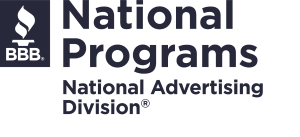
New York, NY – November 13, 2025 – Following a challenge brought by Novo Nordisk Inc., BBB National Programs’ National Advertising Division reviewed express and implied advertising claims made by Fletcher Family Medical Center for its compounded sublingual semaglutide product, Subsema, that appeared on Fletcher’s website.
Fletcher Family Medical Center is a medical center located in Los Angeles, California thatd advertised and marketed Subsema, a compounded semaglutide product for sublingual administration. Challenger Novo Nordisk is a global pharmaceutical company specializing in diabetes care as well as other chronic conditions including obesity, rare diseases, and cardiovascular conditions. Novo Nordisk markets the only FDA-approved semaglutide medicines, including Rybelsus®, Ozempic® and Wegovy®.
Novo Nordisk challenged Fletcher’s express and implied claims regarding its compounded semaglutide product’s claimed superiority, safety, efficacy, and health benefits.
During the inquiry, Fletcher informed the National Advertising Division (NAD) that it had permanently discontinued the challenged claims. Therefore, NAD did not review the claims on their merits and will treat the discontinued claims, for compliance purposes, as though NAD recommended they be discontinued.
All BBB National Programs case decision summaries can be found in the case decision library. For the full text of NAD, NARB, and CARU decisions, subscribe to the online archive. Per NAD/NARB Procedures, this release may not be used for promotional purposes.
About BBB National Programs: BBB National Programs, a non-profit organization, is the home of U.S. independent industry self-regulation, currently operating more than 20 globally recognized programs that have been helping enhance consumer trust in business for more than 50 years. These programs provide third-party accountability and dispute resolution services that address existing and emerging industry issues, create fair competition for businesses, and a better experience for consumers. BBB National Programs continues to evolve its work and grow its impact by providing business guidance and fostering best practices in arenas such as advertising, child-and-teen-directed marketing, data privacy, dispute resolution, automobile warranty, technology, and emerging areas. To learn more, visit bbbprograms.org.
About the National Advertising Division: The National Advertising Division (NAD) of BBB National Programs provides independent self-regulation and dispute resolution services, guiding the truthfulness of advertising across the U.S. NAD reviews national advertising in all media and its decisions set consistent standards for advertising truth and accuracy, delivering meaningful protection to consumers and create fair competition for business.
Contact Information
Name: Jennifer Rosenberg
Email: jrosenberg@bbbnp.org
Job Title: media relations
National Advertising Division Will Refer BridgeBio Pharma to Government Agencies for Failure to Participate in Inquiry
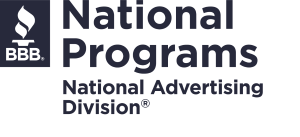
New York, NY – November 7, 2025 – Following a challenge submitted by Pfizer, Inc., BBB National Programs’ National Advertising Division will refer BridgeBio Pharma Inc. to the relevant government agencies for review and possible enforcement action for failure to participate in the National Advertising Division (NAD) inquiry.
Pfizer and BridgeBio sell prescription medication to treat transthyretin amyloid cardiomyopathy, a progressive and fatal disease caused by the buildup of a protein called transthyretin (TTR) in the heart and other organs.
At issue for NAD were challenged express and implied claims that BridgeBio’s Attruby product is superior to Pfizer’s Vyndamax because it offers greater TTR stabilization rates. Pfizer contends these claims are misleading, citing correspondence from the FDA.
BridgeBio declined to participate in the NAD self-regulatory process. Accordingly, NAD will refer the matter to the appropriate government agency and to the platforms on which BridgeBio’s advertising appeared and NAD has a reporting relationship.
All BBB National Programs case decision summaries can be found in the case decision library. For the full text of NAD, NARB, and CARU decisions, subscribe to the online archive. Pursuant to NAD/NARB Procedures, this release may not be used for promotional purposes.
About BBB National Programs: BBB National Programs, a non-profit organization, is the home of U.S. independent industry self-regulation, currently operating more than 20 globally recognized programs that have been helping enhance consumer trust in business for more than 50 years. These programs provide third-party accountability and dispute resolution services that address existing and emerging industry issues, create fair competition for businesses, and a better experience for consumers. BBB National Programs continues to evolve its work and grow its impact by providing business guidance and fostering best practices in arenas such as advertising, child-and-teen-directed marketing, data privacy, dispute resolution, automobile warranty, technology, and emerging areas. To learn more, visit bbbprograms.org.
About the National Advertising Division: The National Advertising Division (NAD) of BBB National Programs provides independent self-regulation and dispute resolution services, guiding the truthfulness of advertising across the U.S. NAD reviews national advertising in all media and its decisions set consistent standards for advertising truth and accuracy, delivering meaningful protection to consumers and creating fair competition for business.
Contact Information
Name: Jennifer Rosenberg
Email: jrosenberg@bbbnp.org
Job Title: media relations
National Advertising Review Board Recommends AT&T Modify “Learn How Everyone Gets iPhone 16 Pro on Us” Claim
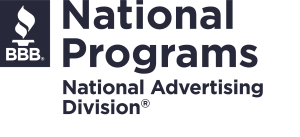
New York, NY – November 6, 2025 – A panel of BBB National Programs’ National Advertising Review Board (NARB), the appellate advertising body of BBB National Programs, has recommended that AT&T Services, Inc. modify its advertising to avoid conveying a false message regarding eligibility for an iPhone device offer.
The underlying National Advertising Division (NAD) case (#7501) was initiated by Verizon Communications Inc. under Fast-Track SWIFT, an expedited process for single-issue advertising.
In that challenge, NAD found that in the challenged “Learn how everyone gets iPhone 16 Pro on us” claim, reasonable consumers understand there are limitations to the term “everyone” but that some may interpret “everyone” to mean every person who becomes an AT&T subscriber is eligible and may be surprised that it is not everyone who gets an iPhone, but only those who subscribe to specific plans.
Therefore, NAD recommended AT&T modify its advertising to avoid conveying the message that everyone is eligible for the offer or to clearly and conspicuously disclose that although everyone can be eligible for the offer, they must subscribe to certain plans.
The NARB panel agreed with NAD’s conclusion that the challenged advertising, on its face, conveys a false message that everyone “gets” a free phone and does not clarify the message by disclosing a material limitation to the offer of a free cell phone in a clear and conspicuous manner.
The panel recommended AT&T modify its advertising to avoid conveying the message that everyone is eligible for AT&T’s free cell phone offer, or to clearly and conspicuously disclose that subscribers to value plans are not eligible or otherwise make clear the extent of plan eligibility.
In its advertiser statement, AT&T stated that it will “comply with NARB’s decision.”
All BBB National Programs case decision summaries can be found in the case decision library. For the full text of NAD, NARB, and CARU decisions, subscribe to the online archive. Per NAD/NARB Procedures, this release may not be used for advertising or promotional purposes.
About BBB National Programs: BBB National Programs, a non-profit organization, is the home of U.S. independent industry self-regulation, currently operating more than 20 globally recognized programs that have been helping enhance consumer trust in business for more than 50 years. These programs provide third-party accountability and dispute resolution services that address existing and emerging industry issues, promote fair competition for businesses, and a better experience for consumers. BBB National Programs continues to evolve its work and grow its impact by providing business guidance and fostering best practices in arenas such as advertising, child-and-teen-directed marketing, data privacy, dispute resolution, automobile warranty, technology, and emerging areas. To learn more, visit bbbprograms.org.
About the National Advertising Review Board (NARB): The National Advertising Review Board (NARB) is the appellate body for BBB National Programs’ advertising self-regulatory programs. NARB’s panel members include 85 distinguished volunteer professionals from the national advertising industry, agencies, and public members, such as academics and former members of the public sector. NARB serves as a layer of independent industry peer review that helps engender trust and compliance in NAD, CARU, and DSSRC matters.
Contact Information
Name: Jennifer Rosenberg
Email: jrosenberg@bbbnp.org
Job Title: media relations
National Advertising Division Refers Virgin Scent to Regulatory Authorities for Failure to Respond to Art Naturals NAD+ Dietary Supplement Inquiry
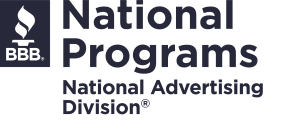
New York, NY, November 5, 2025 – Following an inquiry by competitor Reus Research, LLC, BBB National Programs’ National Advertising Division (NAD) will refer Virgin Scent, Inc. to the Federal Trade Commission (FTC) and the Food and Drug Administration (FDA) for failure to respond to challenged express and implied claims regarding the ingredients in its Art Naturals NAD+ dietary supplement.
Virgin Scent, doing business as ArtNaturals, markets an NAD+ dietary supplement that also contains green tea leaf, turmeric root, and grape seed. Reus, a dietary supplement company, markets competing NAD+ products, including Cata-Kor NAD+ Core and Cata-Kor NAD+ Advanced, and claims Virgin Scent overstates its ingredient amounts. The challenged Virgin Scent claims appear on product labels, the ArtNaturals website, Amazon product pages, and social media.
Despite repeated outreach attempts, Virgin Scent did not submit a substantive written response to NAD’s inquiry. Therefore, NAD will refer the matter to the appropriate government agency, in this case the FTC and the FDA, and to the platforms on which Virgin Scent’s advertising appeared and with which NAD has a reporting relationship.
All BBB National Programs case decision summaries can be found in the case decision library. For the full text of NAD, NARB, and CARU decisions, subscribe to the online archive. Per NAD/NARB Procedures, this release may not be used for promotional purposes.
About BBB National Programs: BBB National Programs, a non-profit organization, is the home of U.S. independent industry self-regulation, currently operating more than 20 globally recognized programs that have been helping enhance consumer trust in business for more than 50 years. These programs provide third-party accountability and dispute resolution services that address existing and emerging industry issues, create fair competition for businesses, and a better experience for consumers. BBB National Programs continues to evolve its work and grow its impact by providing business guidance and fostering best practices in arenas such as advertising, child-and-teen-directed marketing, data privacy, dispute resolution, automobile warranty, technology, and emerging areas. To learn more, visit bbbprograms.org.
About the National Advertising Division: The National Advertising Division (NAD) of BBB National Programs provides independent self-regulation and dispute resolution services, guiding the truthfulness of advertising across the U.S. NAD reviews national advertising in all media and its decisions set consistent standards for advertising truth and accuracy, delivering meaningful protection to consumers and create fair competition for business.
Contact Information
Name: Jennifer Rosenberg
Email: jrosenberg@bbbnp.org
Job Title: media relations
National Advertising Division Recommends Plant Paper Discontinue or Modify Certain Comparative Health and Environmental Claims
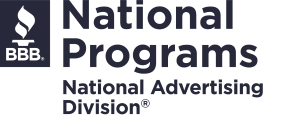
New York, NY, November 3, 2025 – Following a challenge from the American Forest & Paper Association (AF&PA), BBB National Programs’ National Advertising Division recommended that Plant Paper Inc. discontinue or modify certain comparative health and environmental claims for its bamboo toilet and facial tissues.
AF&PA members and Plant Paper compete in the tissue paper industry, selling toilet paper and facial tissue products. AF&PA challenged claims made on Plant Paper’s website and social media posts, including those featuring actress Alicia Silverstone claiming “conventional tree” toilet paper contains harmful chemicals while using highly inflammatory language to assert that competing traditional paper products are toxic and harmful to health.
Toxic Chemicals Health Claims
AF&PA argued that Plant Paper makes broad, unsubstantiated superiority claims that disparage conventional toilet tissue products. For example, in a TikTok video, Plant Paper claims without qualification that conventional toilet paper use has been linked to increased risk of “urinary tract infections, vulvar irritation, and hemorrhoids.”
NAD found that the challenged advertising conveys a disparaging message, suggesting that “conventional tree paper” products made by AF&PA’s membership contain “toxic” and “nasty” chemicals, including bleach, formaldehyde, and PFAS, and that these chemicals cause serious health problems.
Although Plant Paper presented testing showing its own products contain no bleach, PFAS, or formaldehyde and cited studies showing formaldehyde and PFAS can be detected in conventional paper, and that bleaching produces dioxins, NAD found that Plant Paper did not provide reliable, product-specific, data demonstrating that most or all conventional tissue brands contain formaldehyde or PFAS.
Therefore, NAD found that the challenged broad, unqualified comparative claims are not substantiated and recommended that the claims, along with other related express health claims, be discontinued.
Nothing in this decision prohibits Plant Paper from highlighting that its products are free of PFAS and formaldehyde and are unbleached.
Environmental Claims
AF&PA also challenged implied claims it argued convey the misleading message that (1) Plant Paper is made in a way that does not entail any “toxic” chemicals, while conventional tree tissues are made with intentionally added toxic chemicals, and (2) as a result, Plant Paper products are better for human health and the environment. AF&PA also argued that Plant Paper’s advertising conveys the message that its manufacturing process is better for the environment and less destructive than competing “tree paper” products.
NAD found that Plant Paper’s evidence describes the environmental advantages of bamboo harvesting generally, such as lower carbon impacts on the environment; however, NAD determined that such evidence was not a good fit for Plant Paper’s environmental superiority claims that convey the message that conventional tree product manufacturing is harmful to the environment.
NAD therefore recommended that Plant Paper modify its advertising to avoid conveying that (1) Plant Paper is made in a way that does not entail any “toxic” chemicals, while conventional tree tissues are made with intentionally added toxic chemicals; (2) as a result, Plant Paper products are better for human health and the environment; and (3) Plant Paper’s manufacturing process is better for the environment and less destructive than competing “tree paper” products.
During the proceeding, Plant Paper voluntarily discontinued certain toilet paper claims. Therefore, NAD did not review the claims on their merits and will treat the discontinued claims, for compliance purposes, as though NAD recommended they be discontinued.
In its advertiser statement, Plant Paper stated it “will comply with NAD’s decision” but “respectfully disagrees with NAD’s finding that there was not enough evidence to show the comparative harms of competitor toilet paper products.”
All BBB National Programs case decision summaries can be found in the case decision library. For the full text of NAD, NARB, and CARU decisions, subscribe to the online archive. Per NAD/NARB Procedures, this release may not be used for promotional purposes.
About BBB National Programs: BBB National Programs, a non-profit organization, is the home of U.S. independent industry self-regulation, currently operating more than 20 globally recognized programs that have been helping enhance consumer trust in business for more than 50 years. These programs provide third-party accountability and dispute resolution services that address existing and emerging industry issues, create fair competition for businesses, and a better experience for consumers. BBB National Programs continues to evolve its work and grow its impact by providing business guidance and fostering best practices in arenas such as advertising, child-and-teen-directed marketing, data privacy, dispute resolution, automobile warranty, technology, and emerging areas. To learn more, visit bbbprograms.org.
About the National Advertising Division: The National Advertising Division (NAD) of BBB National Programs provides independent self-regulation and dispute resolution services, guiding the truthfulness of advertising across the U.S. NAD reviews national advertising in all media and its decisions set consistent standards for advertising truth and accuracy, delivering meaningful protection to consumers and create fair competition for business.
Contact Information
Name: Jennifer Rosenberg
Email: jrosenberg@bbbnp.org
Job Title: media relations
